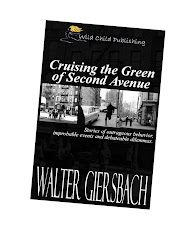“Noirish” mysteries, crime and horror stories may not be entirely an American genre, but you can’t read them without considering roots that go back to Dashiell Hammett, Raymond Chandler, H.P. Lovecraft and the early days of short stories. Happily, this kind of fiction is being published today.
Pulp writing brings back memories to people — mostly men — of a certain age. My recollection is of reading Argosy magazine in the barbershop or surreptitiously under the bed covers. Happily, the magazine founded in 1882 and ending with the last issue in 1978 is back. I was thrilled to discover the publication has been reborn as a digital all-fiction magazine in the U.K. at http://argosymagazine.co.uk/. And, that its Pulp Modern volume 2 is devoted to the stuff of mystery, fear, thrills and horror.
There are four top-notch stories in this issue.
“The Beat of Heavy Wings” by Kurt Newton skirts horror and moves tangentially past myth to tell the current-day story of ancient Thunderbirds. They’re baaack in New England and scarier than ever. Worse, they’ve captured a young boy who was innocently camping out to collect moths. Thirty years later, the boy’s younger brother returns home to resolve the loss and to make amends with his parents. Seeking closure to the disappearance of his brother, Drew repeats their night-time moth-hunting expedition. Wrong! He too is taken by a Thunderbird and, in the process, makes an amazing discovery. On surface, the story simply recounts a tale, but the sub-text is a magnificent job of digging deeply into a person’s guilt and redemption.
James McConnell’s “Your Basic Plot” trades on the bottomless pit of paranoia when a man wakes up in a strange Texas location, doesn’t remember his name, and finds his wallet and belongings have been lifted. It’s the loss of a man’s basic identity. An existential question is raised when a skinny man at the homeless shelter says he can’t eat because of “Discipline. Cain’t live without discipline. Man is a prisoner of his animal appetites.” The crime appears when the wealthy do-gooder Suki Vanderwaal-McCarthy hires the man with no name to murder her husband. Conscience rises from somewhere, and the narrator immediately tells his new friend on the local police force about the plot. He carries a wire, he negotiates with the socialite as to whether he’ll do the murder if he can get laid. But, he confesses to her anger, “I can’t do it.” The tension is “Your Basic Plot” is that the reader learns to care passionately about a “bum” trying to determine his identity before the story segues into the crime plot.
“Illegal Aliens” draws out the trope of Area 51, the Nevada desert, and alien landings. Lloyd Helm takes a novel tack by clearly drawing his main characters — characters who could have jumped straight out of an Elmore Leonard novel. They set out ostensibly to take location pictures for a zombie-alien film (their cover for getting on the restricted base), immediately run into Air Force personnel, and choose to grab a few cold brews at the Spaceship Bar and Grill. Their next conscious thought is of being collared by Air Force police, having no memory of the past evening, and experiencing a certain pain in their backsides. This is a jolly romp, but the narrator begins puzzling out inconsistencies in the military’s explanations. Promising to never mention the incident, they are released — and set off to find that Spaceship Bar and Grill.
“Hidden” by Peter Glassborow begins calmly enough with an Auckland, New Zealand, trucking firm’s security guard trying to find where a driver has been hiding his truck in order to goof off. Cameras, gate checks and radio messaging fail to uncover the hiding place, which is driving George crazy. George is a simple person trying to make sure his employer isn’t cheated, but the driver’s daily disappearances are plaguing him day and night. Carefully, the cheating driver’s routes are reconstructed, leading George to a junk-filled area between two buildings. Tire tracks lead in and then disappear. And, dear reader, you don’t want to know what George eventually finds in the location of the driver’s hiding place.
Some of the novelettes’ success lies in the stories being told in the first person. (“Hidden” is written in the usual third-person singular.) You, the reader, are in the narrator’s mind as he experiences the weird, the unfathomable, the terrifying, and the humorous. This works flawlessly, too, in Glassborow’s story.
It’s not possible for Argosy’s genre fiction like this to succeed without such uniquely drawn characters. Fortunately, the four novelettes will leave you remembering the heroic protagonists long after you’ve turned off your e-book, laptop or PC. In addition, there’s plausibility (could this happen to you?) and sharp dialogue (you’ll wish you’d said, “You’re not a killer… And even if you are, I’m not… Find a killer lawyer, a whole shark school, and be as vicious as you want. But leave me out of it.”). Pulp fiction draws on the darker side of life, but it’s no less realistic. When it’s written well — as these four stories are — they rise to the level of literature.
Sunday, February 23, 2014
Subscribe to:
Post Comments (Atom)


No comments:
Post a Comment